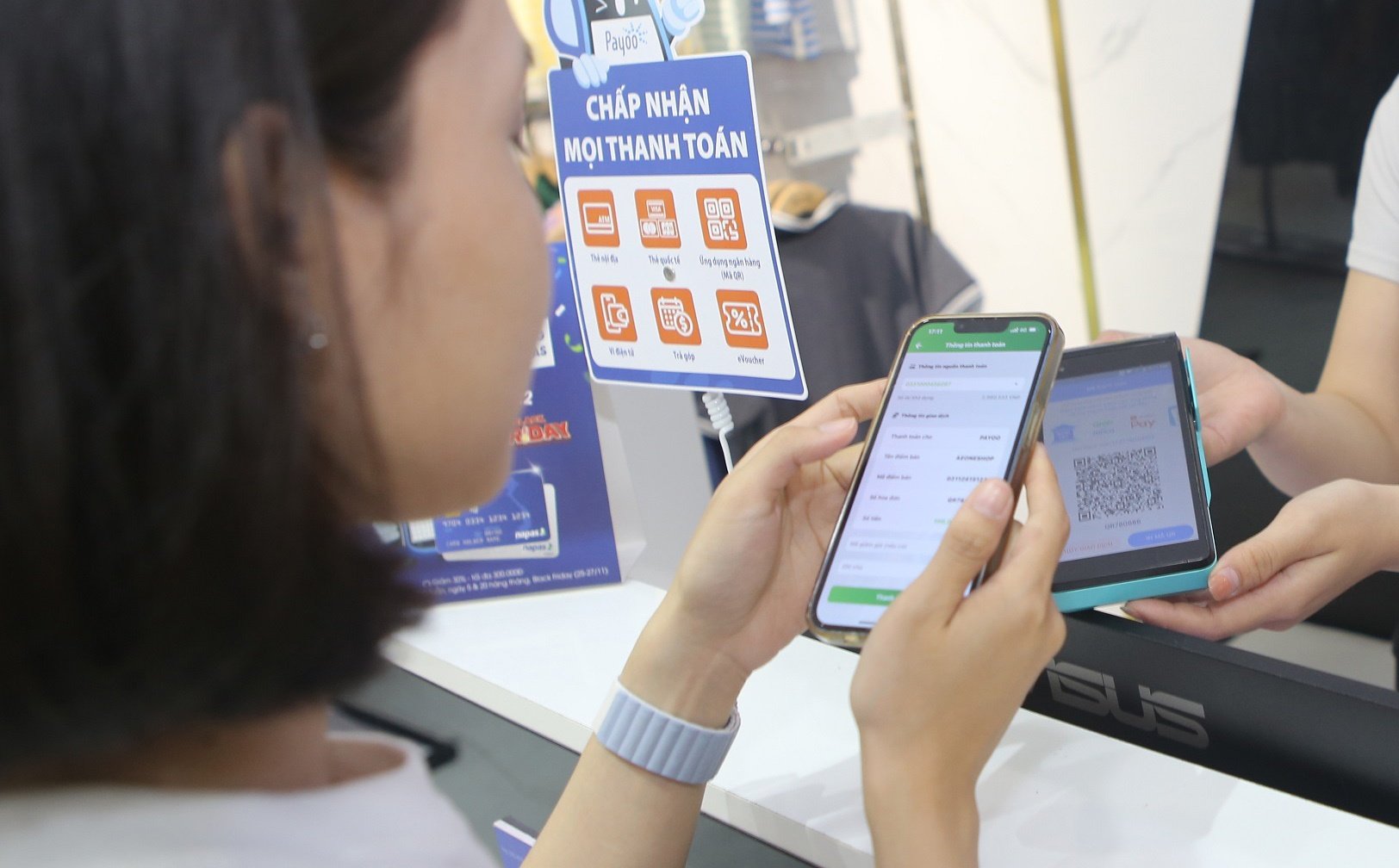 |
| Mobile Money can only compete when it links with credit institutions to expand the cashless payment ecosystem. |
More than 9.87 million people used the pilot
On April 15, the Government issued Resolution No. 87/NQ-CP, officially extending the pilot period of the service of using telecommunications accounts to pay for small-value goods and services (Mobile Money) until the end of 2025. This is an activity to continue exploiting the potential of this cashless payment method, while creating a complete legal foundation for Mobile Money to operate more sustainably and effectively in the next phase.
The State Bank of Vietnam (SBV) report shows that after nearly 3 years of piloting the Mobile Money payment service, many positive results have been achieved in terms of both the number of users and the network of service points. Accordingly, the total number of customers registering and using the Mobile Money service among the three telecommunications companies, Viettel, VNPT-Media and MobiFone, is more than 9.87 million. Of these, the number of customers in rural, mountainous, remote, border and island areas accounts for 71.73%, equivalent to about 7.1 million customers and the number of accounts being activated and used is about 6.56 million accounts.
Regarding the development of service business points and payment acceptance units, by the end of the third quarter of 2024, the whole country will have nearly 12,000 Mobile Money service business points established and about 276,000 payment acceptance units established to provide essential services such as electricity, water, education, telecommunications, and public services. The total number of payments for goods and services via Mobile Money reached more than 102 million transactions with a value of over VND 1,462 billion.
According to the assessment of the State Bank and related ministries and branches, the Mobile Money pilot has helped the market diversify payment channels, helping to gradually change people's cash payment habits. Telecommunications enterprises participating in the pilot also recognized that, after 3 years of piloting, Mobile Money payment activities have not resulted in violations of ensuring balances in payment accounts; there have been no cases of distortion, law violations or profiteering from this form of payment. Therefore, researching and perfecting the legal framework to expand Mobile Money payment services is a suitable need, bringing many conveniences and meeting people's actual online payment needs.
Will expand scope and increase limits
In Resolution No. 87/NQ-CP recently issued, the Government continues to assign the State Bank to preside over and coordinate with other ministries and branches to develop a Decree on Mobile Money services to standardize the legal framework for this field.
The State Bank of Vietnam has submitted a document to the Government, clearly expressing its views on the objectives and contents expected to be stipulated in the Decree. Accordingly, the new regulations will continue to encourage the simplification of procedures, creating maximum convenience for users, helping Mobile Money to promote its role in remote areas.
One of the regulations that has attracted public attention is the consideration of loosening the transaction limit. The State Bank of Vietnam's view is to consider raising this limit to an appropriate number, instead of the current maximum transaction limit of VND 10 million/month. This will create conditions for Mobile Money users to pay for higher-value services such as electricity, water, tuition, hospital fees; support localities to promote the rural digital economy, and support farmers and small traders to access a wider market.
In addition, expanding and allowing customers in remote areas, where the banking network cannot reach, to take advantage of the infrastructure of telecommunications enterprises to access and use cashless payment services will help reduce time and costs.
The general view of the State Bank is that Mobile Money does not replace banking services, but is a complementary tool, helping to achieve the goal of national financial inclusion by 2030. Accordingly, in parallel with considering expanding transaction limits when there is a sufficient legal basis and control system, the new Decree will stipulate and clearly define the roles and responsibilities of telecommunications enterprises, ensuring no overlap with banking activities. In the long term, the legal basis will create conditions for Mobile Money services to connect with other payment ecosystems, expanding applications in e-commerce, public services, and social protection.
Regarding risk management and data security, according to the State Bank of Vietnam, the draft Decree will provide specific regulations in the direction of strengthening risk control, protecting users, preventing money laundering, terrorist financing and financial fraud. The expansion of scope and limits will be implemented in a cautious manner, associated with upgrading technical infrastructure, strengthening supervision and raising user awareness.
With the above policies and orientations, it can be seen that the Government's extension of the Mobile Money pilot until the end of 2025 is a necessary step to comprehensively evaluate the effectiveness, overcome limitations, and at the same time complete the legal basis before officially deploying it on a large scale. With a solid foundation from the pilot phase, Mobile Money is facing the opportunity to become an effective tool contributing to the implementation of the goal of financial inclusion and promoting cashless payments in Vietnam.
Source: https://thoibaonganhang.vn/se-nang-han-muc-giao-dich-qua-mobile-money-163532.html


![[Photo] Cultural, sports and media bloc at the 50th Anniversary of Southern Liberation and National Reunification Day](https://vphoto.vietnam.vn/thumb/1200x675/vietnam/resource/IMAGE/2025/4/30/8a22f876e8d24890be2ae3d88c9b201c)


![[Photo] Chinese, Lao, and Cambodian troops participate in the parade to celebrate the 50th anniversary of the Liberation of the South and National Reunification Day](https://vphoto.vietnam.vn/thumb/1200x675/vietnam/resource/IMAGE/2025/4/30/30d2204b414549cfb5dc784544a72dee)
![[Photo] Performance of the Air Force Squadron at the 50th Anniversary of the Liberation of the South and National Reunification Day](https://vphoto.vietnam.vn/thumb/1200x675/vietnam/resource/IMAGE/2025/4/30/cb781ed625fc4774bb82982d31bead1e)





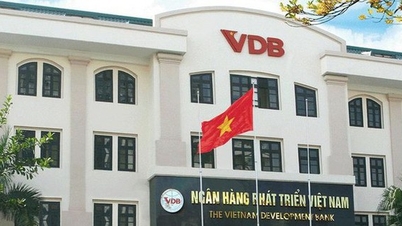










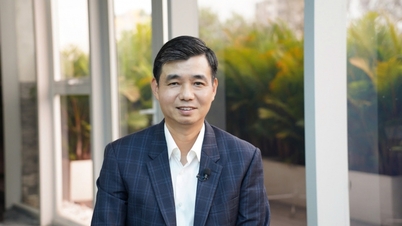
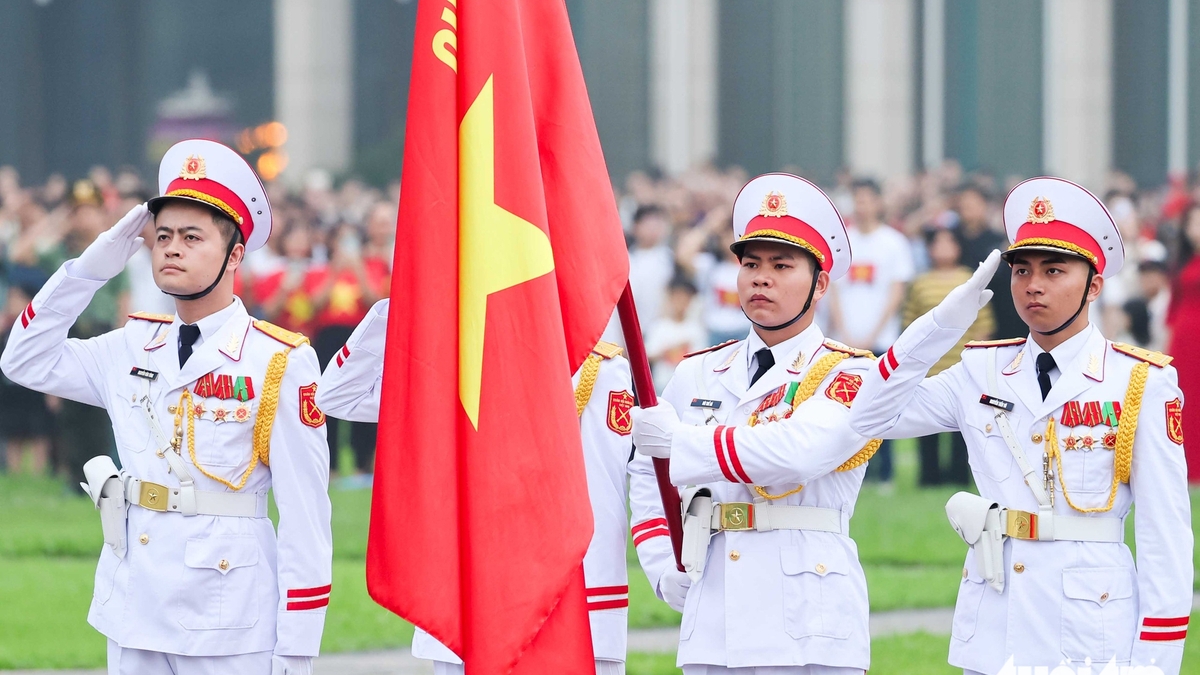













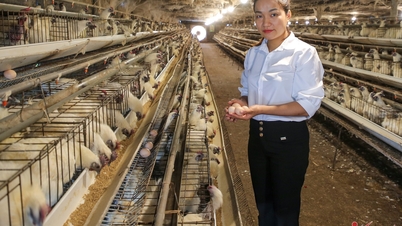


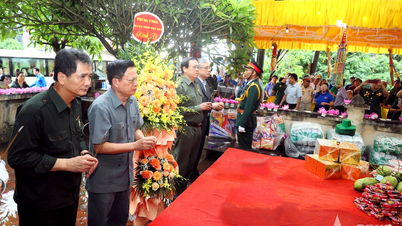
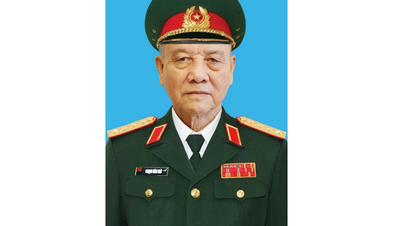






















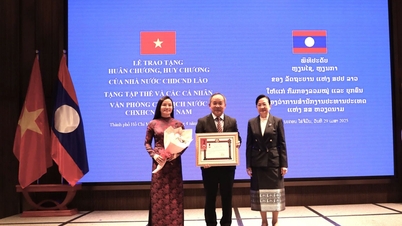



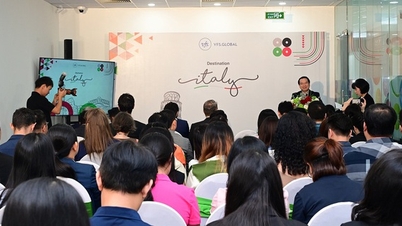
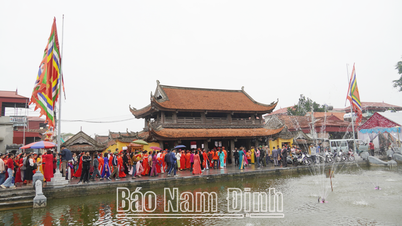





















Comment (0)